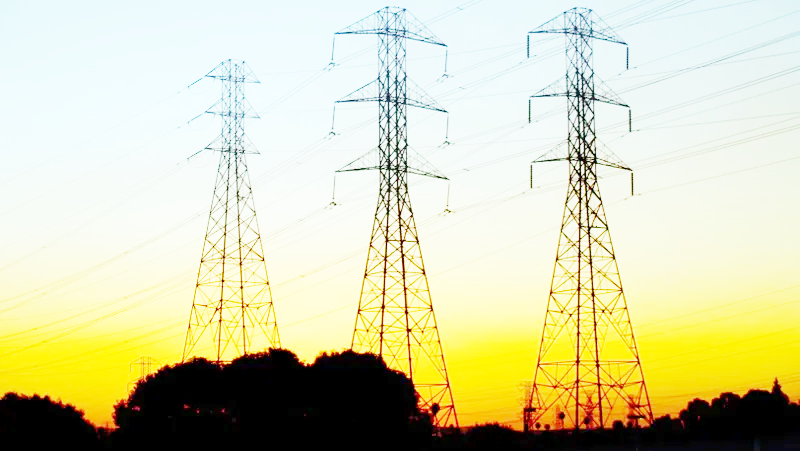Nigeria’s ongoing electricity crisis, characterised by frequent grid collapses and power outages, has become a major impediment to the country’s development and economic growth. The persistent instability of Nigeria’s centralised national grid highlights the need for a decentralized power system that can improve reliability, enhance efficiency, and accelerate progress toward universal electricity access. Experts argue that a decentralised grid model, which includes the use of mini-grids and embedded generation, could provide a transformative solution for Nigeria’s electricity challenges.
Nigeria’s Electricity Act 2023 allows states in Nigeria to generate, distribute, and transport electricity within their borders. This act is a constitutional amendment that restores the states’ authority in the power sector to pre-1999 levels.
Under the Act, states can create local markets for power generation and transmission; customers can choose to remain connected to the national grid or use a mini-grid operator licensed by the state; states can issue licenses to private investors to operate mini-grids and power plants.
The Electricity Act 2023 also repeals the Electricity and Power Sector Reform Act of 2005 and consolidates laws related to the Nigerian Electricity Supply Industry (NESI).
The centralised nature of Nigeria’s power grid makes it vulnerable to widespread outages. A single malfunction or overload can result in a total collapse, cutting off electricity to millions of people and causing massive economic losses. “Nigeria’s centralised grid is fragile,” said Dr. Emeka Eze, an energy policy analyst. “It was built to cater to a much smaller population and capacity, but with Nigeria’s rapid growth, it is no longer adequate.”
As Nigeria’s population continues to grow, demand for electricity increases, putting even greater pressure on the grid and increasing the likelihood of failure. A decentralised system, however, would reduce this strain by distributing generation sources across the country, making the system more resilient to localised failures.
A decentralised grid structure, based on smaller, localized power systems, would also promote efficiency and reduce transmission losses, a significant issue in Nigeria’s current system. According to an electrical engineer and consultant, Peter Omotosho, in the centralised grid, electricity generated in power plants located far from urban centers must travel long distances, losing up to 30 per cent of its energy in transmission.
“The problem with the national grid is that it’s highly inefficient,” said Amina Yusuf, an electrical engineer specialising in grid management. “Transmission losses mean that a substantial amount of generated power is lost before it even reaches consumers. By placing mini-grids closer to the areas they serve, Nigeria could minimise these losses, delivering a greater proportion of generated power to end-users,” she said.
A renewable energy expert Olusegun Adetokunbo, on the other hand, has noted that the adoption of mini-grids and localized energy sources would enable Nigeria to harness its abundant renewable resources, such as solar, wind, and hydroelectric power. He said rural and remote areas, which are often cut off from the main grid, could benefit significantly from small-scale solar installations or mini-hydropower plants. “Decentralised systems allow us to use local resources to meet local demand. In a country with as much sunshine as Nigeria, solar mini-grids are a practical and sustainable solution. Utilising renewable sources in decentralised systems could reduce Nigeria’s dependency on fossil fuels and improve environmental sustainability while ensuring a more reliable power supply,” he said.
From a macroeconomic standpoint, development economist at Adeleke University, Professor Tayo Bello, espoused that a decentralised approach would foster competition and drive investment, potentially reducing electricity costs for consumers. He said in the current setup, the national grid is operated by a limited number of players, which constrains innovation and efficiency. He stated, “By allowing private companies to develop mini-grids or embedded generation projects, the energy sector could become more competitive and attract private capital. This, in turn, could lead to better service and lower prices for consumers. A decentralised system would encourage private investors to bring in new technologies and capital. With more players involved, there would be greater incentives to maintain and upgrade facilities, which ultimately benefits consumers.”
However, implementing a decentralised grid system in Nigeria would require strong regulatory support and an overhaul of existing policies. The Nigerian Electricity Regulatory Commission (NERC) has taken some steps in recent years to encourage mini-grids, but regulatory hurdles still exist. “The regulatory framework needs to adapt to accommodate a decentralised approach,” said Samuel Okonkwo, a former official at NERC. He added, “Policymakers must create incentives and simplify approval processes to encourage private-sector participation. Clear and supportive regulations would provide investors with the confidence to fund decentralised projects, accelerating the shift from a centralised grid to a more resilient and diversified power system.”
The transition to a decentralised grid system also offers social benefits, particularly for underserved communities in rural areas. With centralised power generation concentrated in urban regions, rural communities have often been left behind, with limited access to electricity. A decentralised approach would prioritise local energy solutions for these areas, promoting social equity and improving quality of life. Community leader in Kaduna State, Adamu Bello stated, “A decentralised system would empower rural areas that have been marginalised for too long. Access to electricity means access to opportunities—education, healthcare, and business—all of which are vital for community development.”
A decentralised grid system holds immense promise for Nigeria’s electricity sector. By distributing power generation across the states, Nigeria can create a more resilient, efficient, and inclusive power system that is less susceptible to widespread outages and better suited to meet the country’s growing energy needs. “Decentralisation would not only reduce grid vulnerability and improve service delivery but would also encourage the use of renewable resources, attract investment, and promote social equity,” said financial at Nnamdi Azikiwe University, Dr. Felix Echekoba.
However, for this vision to become a reality, Nigeria must reform its regulatory framework and actively promote a decentralised model that empowers private-sector innovation and community-based solutions, according to Bello.





